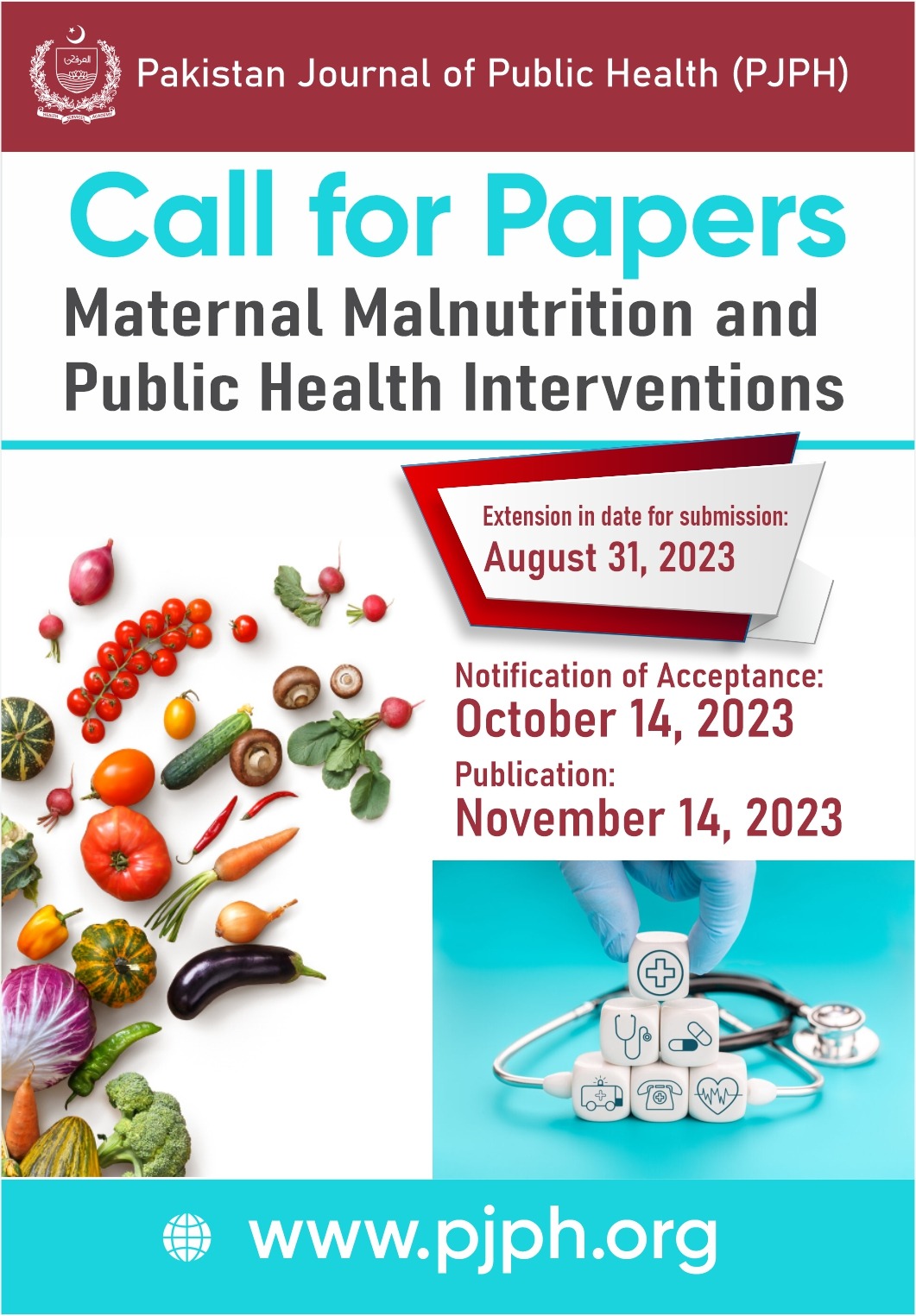Predictors of Knowledge Regarding Puberty and Menstruation among Females of Reproductive Age Visiting Public Health Care Institute of Rawalpindi, Pakistan
DOI:
https://doi.org/10.32413/pjph.v11i3.715Keywords:
Puberty, Menstruation, Reproductive Health, Female AdolescentsAbstract
Background: In this questionnaire based cross sectional survey, the researchers aimed to identify the sociodemographic predictors of knowledge regarding puberty and menstruation among females of reproductive age visiting a public healthcare institute.
Methods: Using non-probability sampling, a self-designed, pretested and validated interviewer administered questionnaire in Urdu language was used to collect data from females of reproductive age (18-55 years) visiting the Gynecology outpatient department of tertiary care hospital in Rawalpindi, Pakistan from November 2019 to March 2020.
Results: Descriptive and inferential analysis using SPSS v. 21.0 revealed that 288 female participants with mean age 30.30±8.98 years participated in the study, out of which 48.6% of the participants had adequate knowledge regarding puberty and menstruation. The knowledge score was significantly higher among married females (67.7%), those living in urban areas (68.3%), having nuclear families (63.2%), and females with more than 12 years of education (69.9%), employed females (92.2%) and those with higher family income (83.3%). Binary logistic regression showed women living in urban setting were 4.01 times more likely to have good knowledge about puberty (OR 4.01, 95% CI 2.03-8.10, p<0.001) and menstruation and working women were 16.5 times more likely to have adequate knowledge (OR 16.5, 95% CI 1.5-181.7, p 0.022).
Conclusion: The inadequate knowledge of females may be attributed to misconceptions regarding menstruation due to poor access to health-related education and a culture of silence around sexual and reproductive health issues. Systemic integration of adequate menstrual socialization at homes and in schools can change the discourse around sexual and reproductive health in the societal landscape. Future studies may explore health-information seeking practices of females from diverse socio-demographics to identify the sources and types of knowledge that they seek on female reproductive health issues.
Downloads
Published
Issue
Section
License
Copyright (c) 2021 Pakistan Journal of Public Health

This work is licensed under a Creative Commons Attribution-NonCommercial 4.0 International License.






